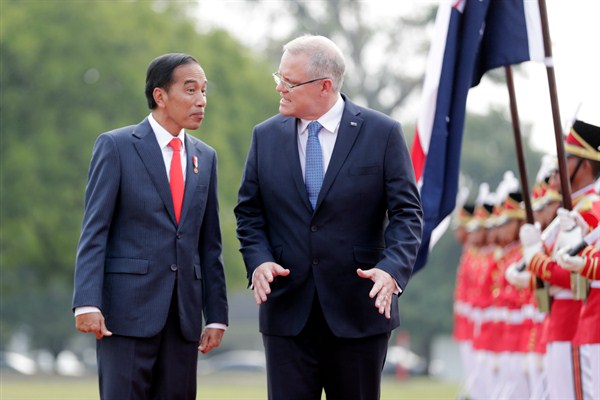When Malcolm Turnbull was ousted as Australia’s prime minister last month, replaced by the country’s treasurer, Scott Morrison, Australians welcomed their seventh prime minister in just 11 years. Turnbull was the fourth prime minister to be removed from office by their own party since 2010 through what is known in Australia as “spills”—cutthroat internal party ballots to remove the leadership without a general election. Turnbull had been one of the leaders of a previous revolt within the governing Liberal Party against then-Prime Minister Tony Abbott that led to Abbott’s ouster in 2015. Turnbull now appears to have played a role in selecting the candidate to run in his seat, which he is vacating, and to prevent Morrison’s favored candidate from running there in a by-election.
The Labor Party, currently in opposition, has fallen prey to its own party leadership “spills” too. But this constant churn in Canberra doesn’t seem to sit well with the Australian public. Respondents in a Sept. 10 poll taken by The Guardian largely disapproved of the leadership change, which seems to have further hurt the Liberal Party’s chances against Labor in the next general election. Another poll in The Australian showed that public support for the governing coalition, which includes the Liberal Party and the National Party, had sunk to its lowest point in a decade.
Why has Australia been so steadily engulfed in political battles at the highest levels? According to some commentators, Australia’s increasingly consolidated and tabloidy media landscape has created highly partisan news outlets that foster nasty leadership contests. Others say that many in the current generation of political leaders are simply too focused on scrambling to the top, without regard for national consequences. The narrow margins between parties in the Australian Parliament, which have led to minority governments or coalitions with a thin one- or two-seat advantage, may also encourage intra-party bloodletting, since they allow governments to be toppled easily. Other observers, like Tom Switzer of the Center for Independent Studies in Sydney, argue that the constant turmoil at the top in Canberra is not, on balance, that consequential for Australian domestic politics and does not presage broader political upheaval. Australia maintains a strong democracy, he says, and it has always been tough on its leaders.

